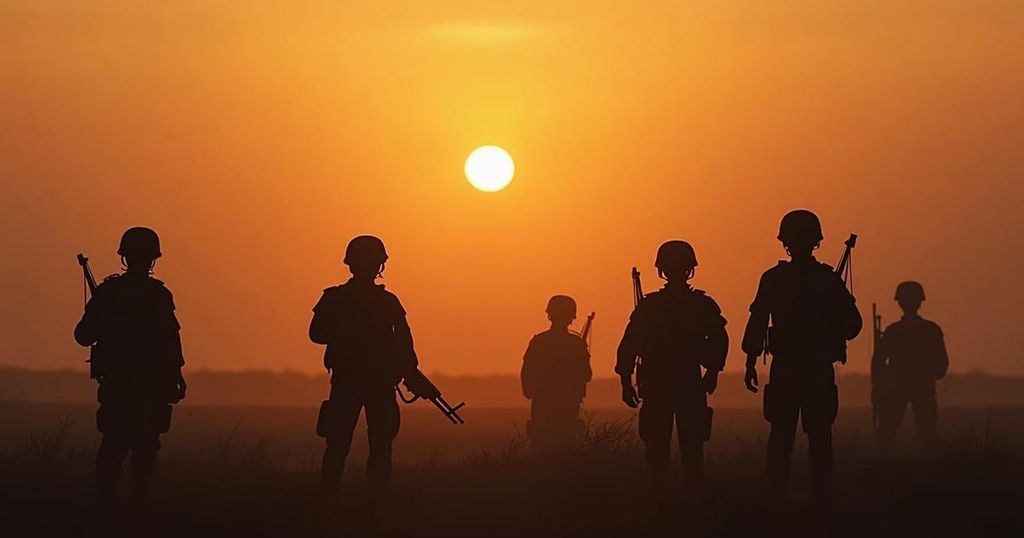Sudanese Army Denies Allegations of Attack on UAE Ambassador’s Residence

The Sudanese army has denied attacking the UAE ambassador’s residence in Khartoum, which the UAE condemned as a ‘heinous attack.’ The army attributed the incident to the Rapid Support Forces (RSF) and emphasized its commitment to respecting diplomatic missions. This denial occurs amid ongoing conflicts between the army and RSF, which have exacerbated humanitarian crises in Sudan.
The Sudanese army has refuted allegations from the United Arab Emirates (UAE) regarding a recent attack on the UAE ambassador’s residence in Khartoum. The UAE’s foreign ministry condemned a military aircraft strike, which purportedly resulted in significant damage to the ambassadorial compound, describing it as a “heinous attack.” The Sudanese military, however, countered these claims, asserting that it does not target diplomatic premises and attributing responsibility for the incident to the paramilitary group, the Rapid Support Forces (RSF). In an official statement, the Sudanese army emphasized its respect for diplomatic missions, asserting, “it does not target the headquarters of diplomatic missions, United Nations agencies or voluntary organisations and does not turn them into military bases and loot their assets.” The military characterized the actions attributed to it as shameful and cowardly acts by the RSF, which it continues to engage in ongoing conflict since the escalation of violence began in April of last year. The Sudanese military has previously accused the UAE of supporting the RSF with arms and financial assistance. The backdrop of the situation involves a complex conflict in Sudan, where the military and RSF are competing for power amid efforts to transition to civilian governance. Recent military operations have further escalated tensions, leading to civilian casualties and a humanitarian crisis affecting approximately half of Sudan’s population, according to United Nations reports. Additionally, the country is facing a cholera outbreak exacerbated by flooding, further complicating the dire conditions on the ground.
The situation in Sudan has devolved into a violent struggle between the Sudanese army and the paramilitary Rapid Support Forces (RSF) since April of the previous year. This conflict has roots in the power vacuum following the ousting of long-time leader Omar al-Bashir and the subsequent failed transition to civilian governance. As a consequence of the ongoing warfare, an estimated 25 million individuals in Sudan require humanitarian assistance, and there is a looming threat of famine amid widespread displacement and public health crises. The international community has closely monitored the involvement of foreign nations, including allegations of military support from the UAE to the RSF, raising serious concerns about diplomatic security and the protection of humanitarian efforts.
In summary, the disputes between the Sudanese army and RSF have not only heightened military tensions in Sudan but have also drawn international attention due to potential violations of diplomatic norms and humanitarian crises. The UAE’s condemnation of the alleged attack on its ambassador’s residence illustrates the precarious nature of diplomatic relations within the region. Both factions continue to exchange accusations regarding violent conduct, significantly impacting the civilian population caught in the crossfire.
Original Source: news.sky.com








